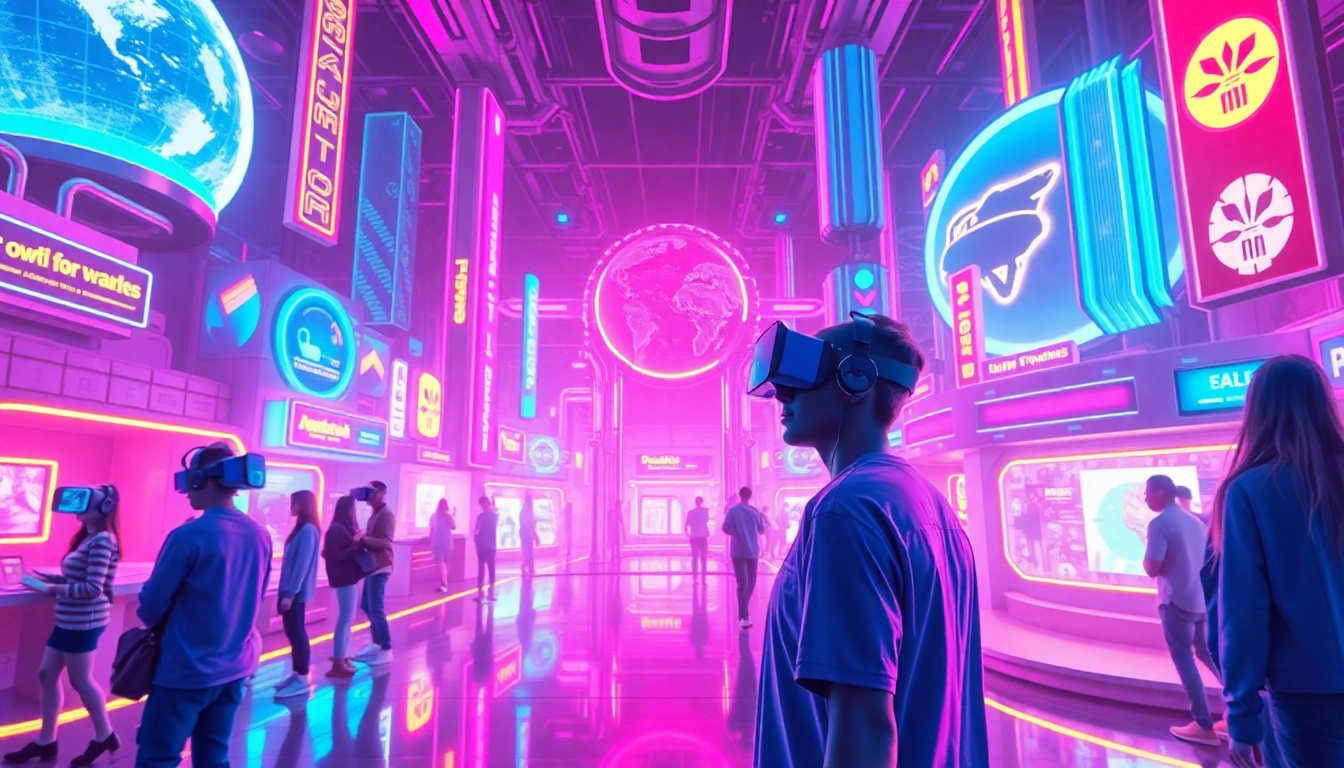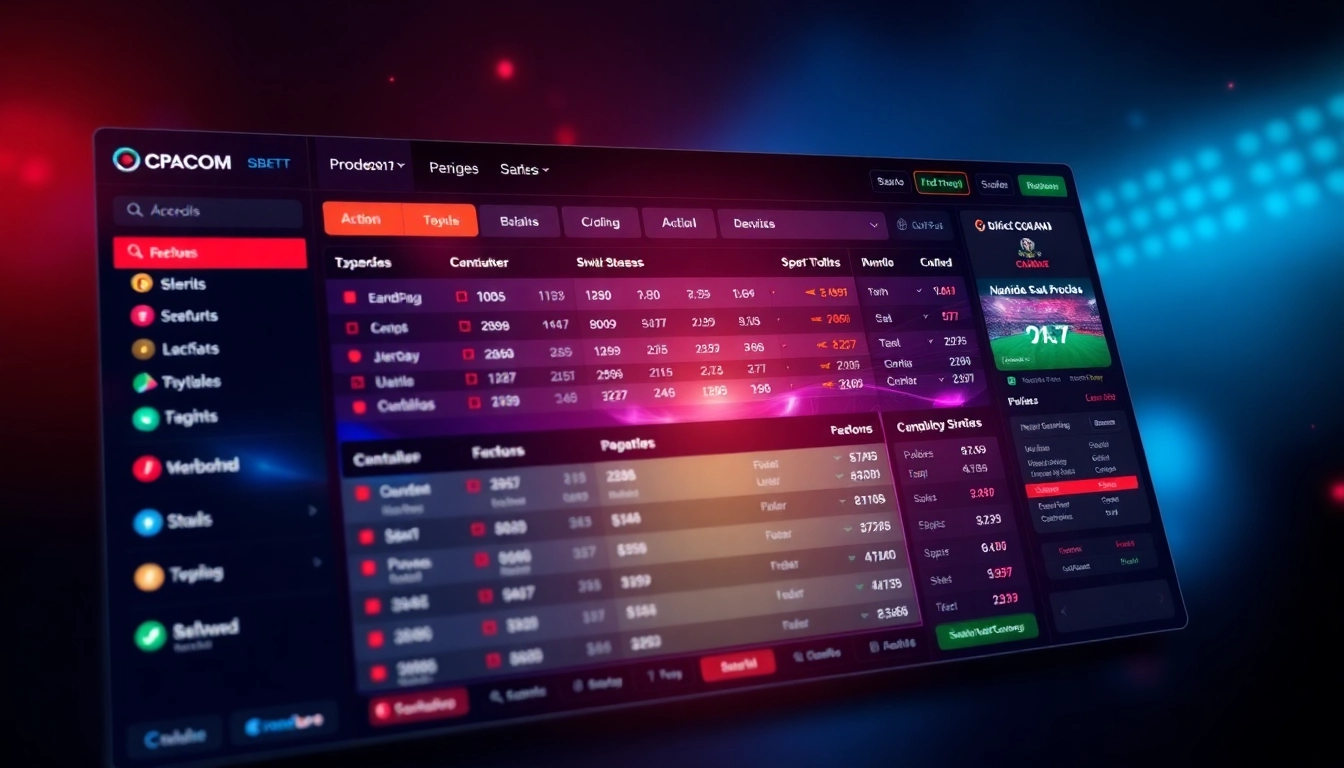Current Market Overview: Navigating the Financial Landscape Amidst Global Uncertainty
The global financial ecosystem remains in a state of flux, with stock markets exhibiting mixed performances, gold reaching new heights, and currencies reacting to geopolitical and economic developments. Investors and traders are continuously analyzing these fluctuations to identify opportunities and mitigate risks. One avenue gaining increasing attention is Metaverse News, which offers valuable insights into the evolving virtual economy and its growing integration into mainstream finance.
Understanding the Latest Trends in Metaverse News
Current Developments and Market Movements
Recent developments in the metaverse landscape reveal a tilting balance toward technological innovation and strategic corporate collaborations. For instance, major tech giants like Meta Platforms are exploring partnerships to enhance app functionalities and user engagement, signaling a broader industry shift toward immersive digital experiences. Market movements reflect this trend; while traditional stock indices show modest gains or losses, digital assets like cryptocurrencies and NFTs experience heightened volatility, often driven by geopolitical tensions and regulatory discussions.
An intriguing indicator of investor sentiment is gold’s record-breaking surge, surpassing $3,500 per ounce, which underscores a flight to safe-haven assets amidst macroeconomic uncertainties. Meanwhile, European equities posted marginal gains, supported by sectors such as defense and banking, illustrating cautious optimism. The interplay between these traditional markets and the emerging virtual economies underscores the importance of staying informed through reliable sources like Metaverse News for timely insights.
Emerging Platforms and Technologies
The metaverse economy is propelled by advances in Virtual Reality (VR), Augmented Reality (AR), and Mixed Reality (MR). Platforms like Decentraland, Sandbox, and others are establishing themselves as pioneering spaces for social, commercial, and entertainment activities. These platforms leverage next-generation headsets and real-time rendering technology to create immersive experiences that rival physical reality.
Artificial Intelligence (AI) further enhances these environments by personalizing user interactions, optimizing virtual assets, and facilitating smarter content creation. Blockchain technology underpins the digital ownership economy, enabling NFTs and secure transactions, which are vital components of the metaverse’s economic fabric.
Upcoming innovations, such as 5G connectivity and edge computing, promise to reduce latency, making virtual interactions more seamless. As these technologies mature, artists, developers, and entrepreneurs are exploring new monetization models, including virtual real estate, branded experiences, and tokenized assets, shifting the focus toward a robust virtual economy.
Impact on Digital Society and User Interaction
The infusion of metaverse platforms into daily life transforms societal norms and user engagement patterns. Virtual spaces now serve as alternative venues for work, education, and social gatherings, fostering a hybrid reality that blends physical and digital worlds.
This shift demands a reconsideration of social dynamics, digital identity, and community building. Platforms integrating features like avatar customization, live events, and social commerce are enhancing user interaction, making virtual spaces more inclusive and accessible.
However, this evolution also raises questions about data security, privacy, and digital well-being—issues that industry leaders and regulators are actively addressing to ensure a sustainable virtual environment.
How Metaverse News Influences Investment and Business Strategies
Virtual Economy Growth and Investment Opportunities
The virtual economy within the metaverse has emerged as a significant investment frontier. Analysts project that the sector could reach hundreds of billions of dollars in value, driven by increasing adoption of digital assets, virtual services, and decentralized platforms. Early investments in virtual land parcels, NFTs, and infrastructure development have generated substantial returns for informed investors.
For instance, companies are recognizing the potential by launching virtual storefronts or sponsoring branded experiences in metaverse environments, creating diversified revenue streams beyond physical markets. Strategic allocation toward blockchain startups, VR hardware manufacturers, and content creators can position investors advantageously in this expanding ecosystem.
Corporate Partnerships and Funding Trends
Partnerships between tech giants and entertainment conglomerates are fueling the metaverse development race. Investment rounds are increasingly characterized by venture capital pouring into startups specializing in AR/VR, blockchain, and AI. Notable examples include collaborations aimed at developing interoperable virtual worlds, enhancing user experience, and creating seamless digital economies.
Funding trends indicate a growing appetite for innovative projects that address scalability, security, and user engagement challenges. Mergers and acquisitions in the space further accelerate market consolidation and technological advancement.
Regulatory Challenges and Opportunities in the Metaverse
Regulation remains a critical hurdle. Governments worldwide are debating frameworks that balance innovation with consumer protection. Clearer policies on digital asset ownership, data privacy, and platform accountability can unlock further growth, attract institutional investment, and foster a stable market environment.
Developers and enterprises that proactively incorporate compliance into their strategies will gain competitive advantages, ensuring longevity amid evolving regulatory landscapes.
Integrating Metaverse News with Future Technologies
Advancements in VR, AR, and Mixed Reality
Future evolution will see VR, AR, and MR converging into unified, ultra-realistic environments. Wearables and spatial computing devices are expected to become more affordable and ergonomic, expanding adoption among consumers and businesses alike.
These advancements will enable more immersive social interactions, educational experiences, and enterprise solutions, fundamentally altering how users engage with digital content.
Artificial Intelligence’s Role in Virtual Environments
AI is central to creating adaptive, personalized virtual worlds. AI-driven avatars, real-time content moderation, and intelligent NPCs are enhancing the authenticity and interactivity of metaverse experiences. Moreover, AI facilitates data analysis for targeted marketing and user engagement optimization, providing brands with actionable insights.
Blockchain, NFTs, and Digital Ownership in the Metaverse
Blockchain ensures secure, transparent transactions and ownership verification for digital assets. NFTs have become the digital collectible standard, allowing users to own, trade, and showcase unique assets—from virtual clothing to artwork—within the metaverse. Developing robust standards and interoperability protocols is vital for seamless asset movement and value preservation across platforms.
Practical Steps for Engaging with Metaverse News Effectively
Curating Reliable Sources and Staying Updated
Given the rapid pace of innovation and regulatory change, professionals and enthusiasts should prioritize reputable sources like industry reports, official platform updates, and expert analyses. Regularly consulting Metaverse News ensures access to balanced and comprehensive information, enabling timely decision-making.
Strategies for Investors and Developers
Investors should adopt diversified portfolios that include tokens, virtual real estate, and supporting infrastructure. Keeping abreast of technological breakthroughs and regulatory shifts is crucial. Developers, on the other hand, should focus on building scalable, user-centric experiences that prioritize security, inclusivity, and interoperability.
Engaging with early testing phases and community feedback can improve product-market fit and accelerate adoption.
Measuring Impact and Growth in Virtual Spaces
Key performance indicators include active user counts, transaction volume, asset liquidity, and engagement metrics within virtual environments. Benchmarking against industry standards and leveraging AI-driven analytics can provide deeper insights into virtual economy health and growth potential.
Challenges and Ethical Considerations in the Metaverse
Privacy, Security, and Data Management Issues
Handling vast amounts of user data raises significant privacy concerns. Ensuring end-to-end encryption, strict access controls, and transparent data policies is essential to protect users and comply with regulations like GDPR.
Inclusivity and Accessibility
The metaverse must cater to diverse populations, including differently-abled users. Designing accessible interfaces and affordable hardware can promote broader participation and prevent digital divides from widening.
Ethical Use of AI and Digital Assets
As AI enhances personalization and automation, ethical considerations around bias, accountability, and transparency arise. Similarly, responsible management of digital ownership rights and preventing illicit activities like money laundering or platform manipulation are critical for sustainable growth.





